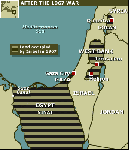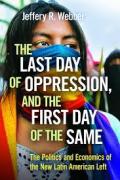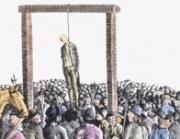Current IssueFrom the Editors
Since Donald Trump has taken up residence in the White House, the country has faced a series of political controversies, a barrage of right-wing legislative and regulatory initiatives, a growing far-right movement, but also a broadening resistance from various sectors of society. Trump: Political Crisis, Right-wing Policies, and the Resistance
Donald Trump’s first six months as president of the United States has been bad in so many ways that it is hard to know where to begin. One Hundred Years of the Russian Revolution: A Retrospective View
At a distance of one hundred years, the Russian Revolution, which truly shook the world, deserves to be remembered once more in terms of its emancipatory significance and its downfall and betrayal. This revolution would not have happened had it not been for the crucial role played by the Bolshevik party. It is true that the profound crisis affecting the Russian society, worsened by the country’s disastrous participation in World War I, could have sooner or later led to a massive upheaval. But it is questionable that a socialist revolution would have taken place without the organizational skills of the Bolshevik party and the political, strategic, and tactical genius of V.I. Lenin. The Russian Revolution, Soviets, and Socialist DemocracyAn Interview with Suzi Weissman
“Revolutions are the mad inspiration of history” Leon Trotsky, My Life
The Tragic Fate of Workers’ Russia
[This is the second of three articles commemorating the Russian Revolution of 1917 and analyzing its fate under Stalin. The first part, “Glorious Harbinger of a New Society: the Bolshevik Revolution,” was published in the previous issue of New Politics, number 62, winter 2017. The text below is slightly expanded from what appeared in the print issue.] Soon after the Treaty of Brest-Litovsk was signed on March 3, 1918, the Soviet republic was under siege. Various anti-Bolshevik forces, some supported by the Allies or the Central Powers, were gathering. If these forces succeeded in reversing the October Revolution, what would be the result? Antonio Gramsci: From War to Revolution
Eighty years after his death, Antonio Gramsci is among the most influential Marxist intellectuals across the board. By the end of World War II, liberal intellectuals had already found in him “a Marxist you can take home to Mother.” The tone was set by Benedetto Croce, who allegedly gushed in 1947, upon reading Gramsci’s Prison Notebooks, “He’s one of us!”1 It reached the point that the Sardinian activist can be presented today as no less than the guarantor of “Italian Democracy.”2 Looking Back at the June 1967 Middle East War
JUNE 2017 IS THE FIFTIETH ANNIVERSARY of the 1967 Middle East War—the June War or, as Israelis like to call it, the Six Day War. Why should we care today about this historical event? For one, the war—with its resulting conquests, refugees, and shifting alliances—helped define the modern Middle East and make it one of the world’s great flash points for further conflict. But there are other reasons as well why this war bears re-examination. Self-organization in the 2016 Palestinian Teachers Strike
From February 14 to March 13, 2016, 35,000 Palestinian teachers in the West Bank government-run school system were on strike. The teachers’ goal was to hold the Palestinian Authority to the terms of a 2013 agreement between the General Union of Palestinian Teachers (GUPT) and the Ministry of Education, an agreement the Palestinian Authority had reneged on for three years running. (Ma’an News, Feb. 16, 2016) Socialism from Below? Bolivia in an Age of Extractivism
Bolivia received global attention for its anti-imperialist and anti-capitalist social movements in the twenty-first century. Best known perhaps were the Water Wars, against water privatization, in 2000 and the Gas Wars, demanding nationalization of the gas industry, in 2003. These rebellions entailed a radical rethinking of natural resource use and distribution. Puerto Rico and PROMESA: Reaffirming Colonialism
“Puerto Rico will be in a death spiral!” With this dramatic announcement, Governor Alejandro García Padilla transformed the island nation’s long-simmering debt overhang problem into an international spectacle. A financial mess that seemingly concerned only institutional investors, municipal bondholders, and some hedge fund managers exploded into a full-blown debt crisis with disquieting parallels to the situation in Greece. Remembering Dependency TheoryA Marxist-Humanist Review
This article aims to show that dependency theory underlines vividly the problem of examining the logic of capital independent of Marx’s concept of value. It is impossible to completely understand the essence of Marx’s critique of political economy, especially a vision of an alternative to capitalism, without grasping value as distinct from exchange value. The distinction is of vital importance, since uprooting relations of exchange cannot itself eliminate the defining principle of capitalism: abstract labor, production for the sake of value. U.S. Workers in the Late Neoliberal EraThe Pressures, the Changes, the Potential
Capitalism in the United States and across the world has gone through a series of mind-bending crises, spatial “fixes,” and continuous restructurings that have disoriented organized labor in most of the developed economies since the beginning of the neoliberal era in the late 1970s and early 1980s. The Left, the Right, and Globalization
Don’t be tricked into thinking that what is going on is a debate about “free trade”—the unhindered exchange of goods—because it is not. Agrarian Reform and the Radicalization of Food Politics
If you’ve seen any of the documentaries that are critical of U.S. agriculture, then you’re most likely aware of the increase in some innovative and somewhat unconventional experiments in growing food—bee hives and gardens on hospital roof tops, abandoned warehouses turned into greenhouses, farms that double as a local community’s source of fresh produce and the pizzeria. The Jewish Role in the Industrial Workers of the World
The most radical and militant union in American history was the Industrial Workers of the World (IWW), colloquially known as the Wobblies. Its active years were from 1905 to 1919, or at best until mid-1920 when it led its last major struggles—a maritime workers strike in California and a miners strike in Colorado. Fierce government repression during and after World War I, along with vigilante violence and internal divisions, dealt the IWW blows from which it never recovered. The mass industrial union movement during the New Deal passed it by. Yet, the IWW continues to exist on a small scale to this day. Harvey, Klein, Smith, Foster: Militant Particularism and Ecosocialism
In “Militant Particularism and Global Ambition: The Conceptual Politics of Place, Space, and Environment in the Work of Raymond Williams” (1995), David Harvey discusses the challenges presented by moving from place out across time. In the midst of his involvement in a participatory research project within a high-stakes local struggle against the closure of an automotive plant, he was accused of being a “free-floating Marxist intellectual,” an outsider, and he was given the “evil eye” and asked to explain “where his loyalties lay.” (71) This is in an environment where people were losing jobs, and families and communities were being destroyed. Art Spiegelman on Si Lewen
Reading, actually looking obsessively at the pages of, this volume and non-volume inevitably brings to mind an unpublished, uncompleted 1967 essay by Herbert Marcuse, “Lyric Poetry After Auschwitz,” translated and published after his death. Here Marcuse says, in part, The Real Tragedy of Che Guevara's LIfe
In Latin America we have a saying, “Poner el dedo en la llaga,” a phrase that means to call attention to a delicate or worrisome point. However, llaga means literally an open sore or ulcer. I believe that Cuban socialist and scholar Samuel Farber puts his finger indeed on a significant sore point in revolutionary history with his latest book, The Politics of Che Guevara: Theory and Practice. While recognizing the undeniable determination, egalitarianism, and selflessness of Che Guevara in his fight against imperialism, Farber meticulously exposes the contradictions of Che’s thought and the political, economic, and social detours that Guevara took in his honest quest for a better world. A Complete Story of AtticaAt long last
Heather Ann Thompson has written a magnificent history of the Attica Prison uprising, the deadliest prison rebellion in U.S. history. It is a long book, nearly 600 pages of text and another 150 of notes and apparatus. It’s a timely book: Attica casts its uneasy shadow over our halting steps to unwind the social catastrophe that is mass incarceration. Memories of Struggle and Despair in the Philippines
In the foreword to Subversive Lives: A Family Memoir of the Marcos Years, the authors write it “was not intended to be about communists and communism”—still the book provides remarkable insights into the Philippine communist movement. The book is a collective memoir of the surviving Quimpo family, relating their lives during the years of the Marcos dictatorship from the early seventies to the mid-eighties. With many of the siblings involved in the revolutionary movement, their memories furnish stories of underground organizing, imprisonment and torture, repression and resistance. Marvin Mandell, Who Fought for Equality, for Life, and for Art
In 1996, at the height of the culture wars, Marvin Mandell joined the battle, writing a long essay, “Canon on the Left,” in which he argued that the left should not allow conservatives to claim the literary canon. While he of course supported the expansion of the canon to include all of the writers of color, as well as the women and all of the others who had been neglected and excluded, he refused to allow the right to claim the great tradition of European literature. He concluded the essay with these words: |
Blogs & On-Line FeaturesDSA’s Convention – Back to the Democratic Party or an Independent Course?A Reply to Joseph Schwartz and Bhaskar Sunkara
When the Democratic Socialists of America (DSA) meets in convention in Chicago this weekend the central question will be this: Will DSA return to the Democratic Party or chart an independent course? DSA members Joseph M. Schwartz and Bhaskar Sunkara have written an article in which they argue that DSA should follow the example of the Communist Party USA in the Popular Front period of the 1930s when it supported Democratic Party president Franklin D. Roosevelt.
The Crisis of the Latin American Left: A Marxist AccountBook Review
Jeffery R. Webber. The Last Day of Oppression, and the First Day of the Same: The Politics and Economics of the New Latin American Left. Chicago: Haymarket, 2017. 327 pages. Index. Tables. Beginning in the late 1990s the Pink Tide began to roll in across much of South America, bringing to power elected leftist governments in Argentina, Bolivia, Brazil, Chile, Ecuador, Uruguay and Venezuela. While these administrations were not all the same—Argentina and Brazil appeared to be more social democratic and Bolivia and Venezuela more radical—they represented a new moment in the history of the Latin American Left.
Argentine Workers’ Fight to Keep Jobs at Pepsi Plant Becomes a National Cause
The story of the workers of a PepsiCo factory in Vicente Lopez, Buenos Aires, Argentina may be slightly confusing to those in America where it seems normal for a factory to close, as many did in the financial crash of 2008, without the workers organizing, despite losing valuable employment in a harsh economy. Yet the actions of the nearly 700 laid-off workers since PepsiCo, the second largest food and beverage corporation in the world, decided to move their production to another city south of Buenos Aires, could teach American workers a thing or two. The State of the Left in Latin America: Ecuador and Bolivia After the Pink Tide
As rightwing governments take power in Argentina, Brazil, and elsewhere across the region, Ecuador’s leftwing Alianza País (Country Alliance, AP) and Bolivia’s Movimiento al Socialismo (Movement Towards Socialism, MAS) and Bolivia have managed to hold onto power. Who Are These Anime Nazis, Anyway?
On the very off chance you haven’t heard, Angela Nagle has come out with her first book: Kill All Normies: Online Culture Wars from 4Chan and Tumblr to Trump and the Alt-Right. Best known for her essays, often on the alt-right, in outlets like Jacobin and The Baffler, the socialist left has been anxious to dive into what appears to be the first book on the alt-right written by one of us — myself included. Ms. Nagle first caught my attention last year with her incredibly insightful essay “The New Man of 4chan,” and I’ve been reading her regularly, and eagerly awaiting this book, ever since. Venezuela: for sale to the highest bidder?
The Bolivarian revolution led by Hugo Chavez from 1999, opened a new chapter in the global struggle for social justice. For anti-capitalists across the world, his ‘21st century socialism’ pointed ahead to a new kind of power, defined in the Bolivarian Constitution as “participativa y protagonista” – a participatory democracy in which the people were the active subjects. It is hard to reconcile that hope with the realities of Venezuela today. The spokespersons of the new State continue to proclaim their revolutionary credentials. Yet they oversee a society in profound and worsening crisis, where hunger has reappeared in a country which just four years ago was congratulated by the U.N. for its virtual elimination of extreme poverty. The right wing media – nationally and internationally – have taken great delight in publishing photographs of food queues marshalled and overseen by armed National Guards. The supporters of Chavismo instinctively refuse to believe the images. But the social crisis they symbolize is real. Sanctuary: In a Great American and International Tradition
Author's note: "I was asked at a recent New York City Democratic Socialists of America meeting of the Immigration Justice Working Group to say a few words to put our work in historical context and then asked to write up my brief talk so that it might be useful to others." Our sanctuary work is in a great national and global tradition of humanitarianism and it is consistent with our international socialist principles. Our work, while fighting for the reform of the immigration system, has as its goal the abolition of the capitalist system that causes involuntary mass migration. And while using existing law to defend immigrants and fighting for better laws, we stand opposed to the concept of the national state, which will never respect and defend immigrants as equals in our society.
The Venezuelan Dilemma: Progressives and the "Plague on Both Your Houses" Position
Rosa Luxemburg in China: Ninety Years of Ups and Downs
The Return of the Public Execution
The videoed executions of Philando Castille, Eric Garner, Tamir Rice, and the many, many other heroes whose lives were ended by State violence and class war have resurrected an old ghost of capital punishment in the developed Western World: Public Executions. French Elections Install a New Political Order, But Is It Built on Sand?
At one level, France’s 2017 elections were a huge triumph for global capital. A young and very modern neoliberal candidate, Emmanuel Macron, won huge majorities for his new political party, On the Move (En Marche), in both the presidential and the legislative elections. At another level, however, Macron’s pathway forward is fraught with challenges, both from a long stagnant economic and a restive French public, many of whom stayed away from the final round of voting. On Listening to Seymour Hersh Ramble about His "Inside Knowledge about Syria"
Journalist Seymour Hersh was interviewed by Aaron Maté of the Real News Network on June 26 after he wrote an article called "Trump's Red Line." The Fourth of July – Revolution and Counter-Revolution in America
The Fourth of July celebrates the launching of the American Revolution and the founding of the nation. Americans have long prided themselves on having the most democratic country on earth, a model for the world. Yet, while American politicians and the media today frequently praise the “founding fathers” of the United States for establishing the country’s democratic institutions, the truth is that nothing could have been further from their minds.
Electoral Politics is a Socialist Priority, But It’s No Common Denominator
Democratic Socialists of America (DSA) is singular on the left as being both a broad radical socialist organization, encompassing left social democrats, Marxists and even a smattering of anarcho-syndicalists, combined with a strong face toward electoral politics. But an electoral orientation per se is not and cannot be the common denominator of our work. It is true that without an electoral face, any political organization is hamstrung and those on the left who argue that support for any Democrat anywhere is treasonous paint themselves into a corner. Electoral politics on the level it can be rationally conducted is worth doing. That, for me, is not in dispute. Its place in our work is what is problematic. Thinking in terms of power is about more than electioneering. US enforces its No Fly Zone over Rojava, leading to World War III…Or NotThe continuation of six years of genocidal war
For the first time in the six-year Syrian war, the US shot down an Assadist warplane on June 18, in defence of its allies in the Syrian Democratic Forces (SDF), the US-backed military and political front dominated by the Kurdish-led People’s Protection Units (YPG). Assadist warplanes had carried out the highly unusual act of bombing the SDF in the town of Ja’Din, near Tabqa in Raqqa Province. |




.jpg)






















 In recent weeks, a number of Venezuelan specialists on the left side of the political spectrum have published and posted pieces that place them in an anti-Chavista, “ni-ni” position that consists of “a plague on both your houses” with regard to Maduro and the Venezuelan opposition. Certainly, at this moment the Chavistas are playing hard ball; the options available to them are limited.
In recent weeks, a number of Venezuelan specialists on the left side of the political spectrum have published and posted pieces that place them in an anti-Chavista, “ni-ni” position that consists of “a plague on both your houses” with regard to Maduro and the Venezuelan opposition. Certainly, at this moment the Chavistas are playing hard ball; the options available to them are limited. In recent years, Rosa Luxemburg’s name has gradually become more prominent in Chinese academia. A number of influential academic journals have even opened up research columns paying tribute to the revolutionary theorist, nearly a century after the first discussion of her work in China. This should be regarded as a second revival of the research on her in China. Compared with the other leading figures in the history of the international communist movement, whether worldwide or just in China, the present "Rediscover Luxemburg" phenomenon is unique. Regarding other leading figures, there have not been so many ups and downs.
In recent years, Rosa Luxemburg’s name has gradually become more prominent in Chinese academia. A number of influential academic journals have even opened up research columns paying tribute to the revolutionary theorist, nearly a century after the first discussion of her work in China. This should be regarded as a second revival of the research on her in China. Compared with the other leading figures in the history of the international communist movement, whether worldwide or just in China, the present "Rediscover Luxemburg" phenomenon is unique. Regarding other leading figures, there have not been so many ups and downs.


 The following is an excerpt from a book about Trump, The Establishment, and the Resistance, that will be published in French by Syllepse early next year. - Dan La Botz
The following is an excerpt from a book about Trump, The Establishment, and the Resistance, that will be published in French by Syllepse early next year. - Dan La Botz






 This essay was originally a talk at the conference held at the New School for Social Research on April 21-22, 2016.
This essay was originally a talk at the conference held at the New School for Social Research on April 21-22, 2016.